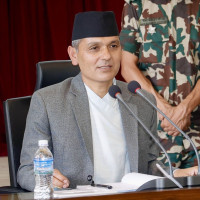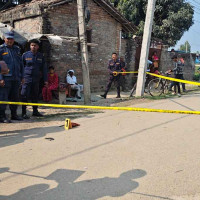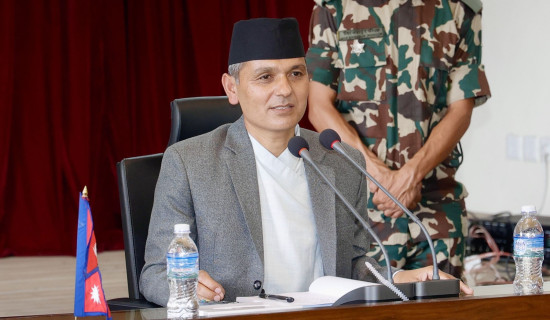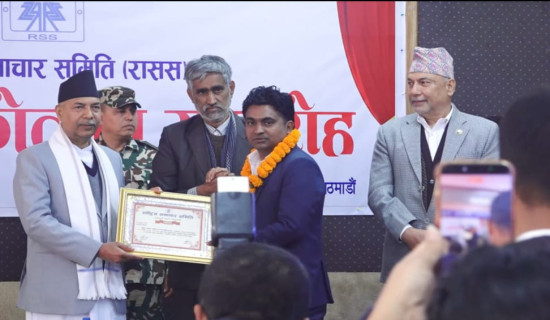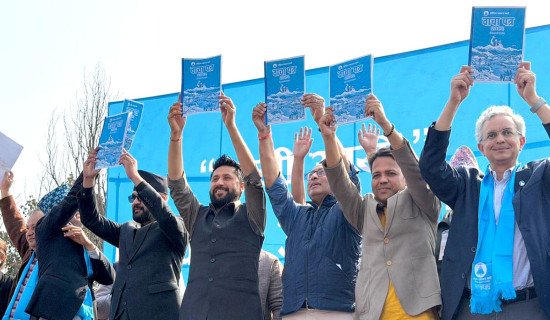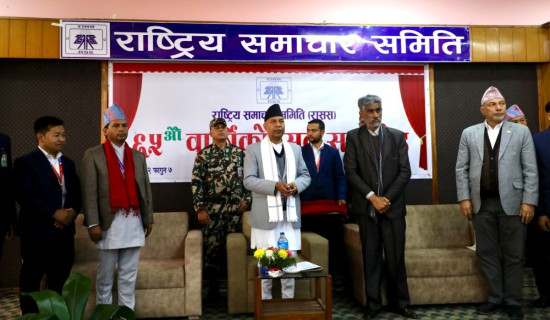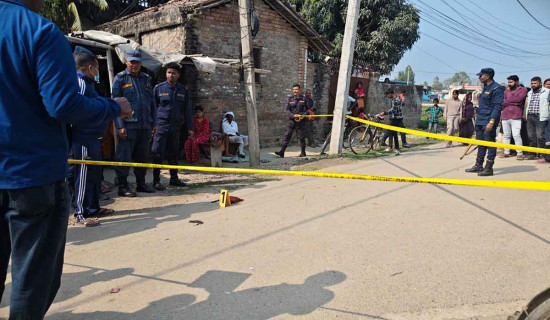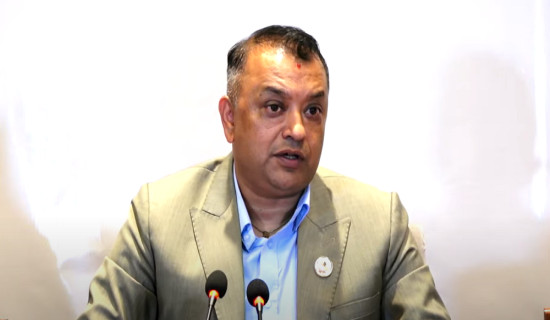- Friday, 20 February 2026
Justice For Weak Leads To Stable Peace
Justice implies fair treatment to all people despite their income, education and power inequalities. It mainly refers to the safety of minorities, the poor and the disabled. It is morally justified to tax the wealthy to support the poor and enable them to exercise their constitutional and human rights. For this, laws are attuned with morality to outlaw discrimination, injustice and exploitation. It provides good cause to fulfil universal basic needs of all, to ensure human dignity and live as a reputable member of society. Justice implies the just condition of living.
It can be achieved by legal reforms such as social inclusion, positive discrimination, affirmative action and quota measures so that even the wretched people find some space for freedom, social mobility, and opportunity. They are the basic condition of social peace. New social movements of Nepali women, Dalits, workers and the poor aim to create an equal playing field for all, attain empowerment, resources and recognition of identity. Their distributional struggle, a form of struggle for justice, is a critical leverage for just peace.
Justice to the poor
Providing all Nepalis realistic access to education, health, social opportunities, resources, institutions of civil society, market and the state can ease their collective action and uplift their life. Justice to the poor can prevent the social conflict arising out of unmet needs, desires, passions and aspirations. Nepal leaders’ hyperbolic promises in political mobilisation and electoral campaigns have aroused irrational hope in people. Post-election environment has thus opened a gap between their promises and indifference from them.
Two facts generate spiteful irony in Nepali public life: first, the constitution provides each Nepali equal voting rights but the economy does not enable them to make an electoral choice, and second, media and institutional politics habitually support the wealthy, not the poor. The attention deficits flag their ability to exercise sovereignty. When political power in Nepal lies with the poor masses forming the majority and economic power with a tiny class of minority in commanding heights, in no way can peace become stable and move the nation to the political vision of a democratic society.
In ancient times, Nepali people had no great appetite for wealth. They had evolved the concept of daan, giving part of their surplus to the helpless and needy, in the hope of earning punya, and no passion to excessively exploit nature to the level of pushing it to an unsustainable path. “Green forest, Nepal’s wealth,” captured its powerful wisdom until the 1970s. It warded off a conflict between wild animals and humans for habitat and food. The commercialisation of nature has taken an ugly turn against ecological justice and damaged the equal availability of public goods.
The decline of cooperative and spiritual values has given rise to a legalistic culture where social justice has taken a back seat against the old saying in Nepal, “Go to Gorkha if justice is denied.” The competitive model of society, economy and political system and overloading of cases in the courts, high cost in hiring lawyers, and impunity for the powerful have postponed a sense of social justice. As a result, many of the rights of Nepalis, including right to work, social justice, social protection and social security, remain distant dream.
Nepali villagers use public deliberation to settle minor issues such as property, land conflict, stealing, witchcraft, etc., at the community level with low costs. Such skills of society take the side of the right people rather than drifting to either the majority or the powerful ones. Culprits are punished by society with social sanction and a minimal fine but are given the chance to self-reform. The notion of Dharma is invoked in mediation and laying a hand on holy books to unveil truth. This type of justice helps to maintain honour and dignity of victims. Nowadays, the mediator applies human rights tenets. Nepal has formulated the notion of gender justice and outlawed archaic customs that supported patriarchy and the subordination of women.
Women’s inclusion, quota, positive discrimination and promotional measures in political parties, bureaucracy, judiciary and governing institutions have increased their representation, interpretation and identity. Gender justice is positively related to freedom, equality and peace. The state of transitional justice, however, lingers. A lack of political will, moral courage, compassion and empathy to victims bars the execution of positive peace and refusal to accept courts’ verdicts. Absence of trust in security and courts and amnesty to odious crime force ordinary Nepalis to keep a culture of silence. Human right violation represents the regression of peaceful life.
Inter-generational justice
Another vital area is inter-generational justice. Owing to chronic poverty, Nepali youths are compelled to move abroad to earn their livelihood, support family and renew the national economy. Nepal has a youth bulge. They are the nation’s future. If the future is exiled, the nation has to teeter without vision, stamina and entrepreneurship. Establishing social peace becomes impossible if children are forced to beg in the streets owing to poverty, family divorce and social distress; the widows, the disabled, old people and the homeless face structural problems. Despite the ratification of many tools of human rights, the poor Nepalis at the bottom of the ladder only face the crushed hope of choice in life.
There is an inverse relationship between positive peace and corruption, impunity and social and political sadism. Giving right based education to Nepalis can improve the rationality of social ties. Fulfilling survival and progress connect them to a higher cause of peace. Structural change is vital to deal with unjust inequality and uphold corrective justice to tackle the searing challenges and produce better development outcomes. A bridge between Nepal’s traditional duty-based and modern right-based culture will be built so that both sides create democratic space to engage in mutual dialogue, accountability and realise the aspiration of Nepalis for positive peace. Without peace, justice is not possible and without justice, peace remains a mere illusion.
(Dahal holds an MA in Peace and Conflict from Otto-Von Guericke University, Germany)







